
Elena and Vera’s pandemic: two women fighting to overcome difficulties
Elena and Vera are over 30 years old. They live in the countryside. Both have children, and the pandemic has not bypassed them. But the pandemic is not their only challenge and the women are not afraid. They have faced even greater difficulties in life, so, armed with patience and faith, they are sure that they will overcome these less happy times.
The village of Zagarancea is four kilometres from the centre of Ungheni. We are entering the village. We advance to the lofty stadium, then turn right onto a lane. Elena is waiting for us at the gate. We see her slender figure through the thick fog. We have arrived. Elena invites us inside. We enter the green gate, then open one of the doors of the house. The house has several entrances, and Elena tells us that she shares the space with one of her six brothers.
‘My brother lives with his family in one part of the house, and I live with my children in the other. After my mother died, there was a lot of noise because of the house, but I don’t want to argue with my brothers and sisters for a corner of the house.’
Elena is 32, she lives in two rooms with her two children, Ilie (11) and Cristina (12). The children are at school. Now they can go, it was harder in March last year, when the pandemic had just broken out. Elena calculates how long ago the pandemic started. She does not remember exactly but she remembers very well how it all started.
‘I think it was chaos all over the world. There was fear. There was panic. It was impossible to go out to the store, you could be fined. I’m glad it is over a bit now.’
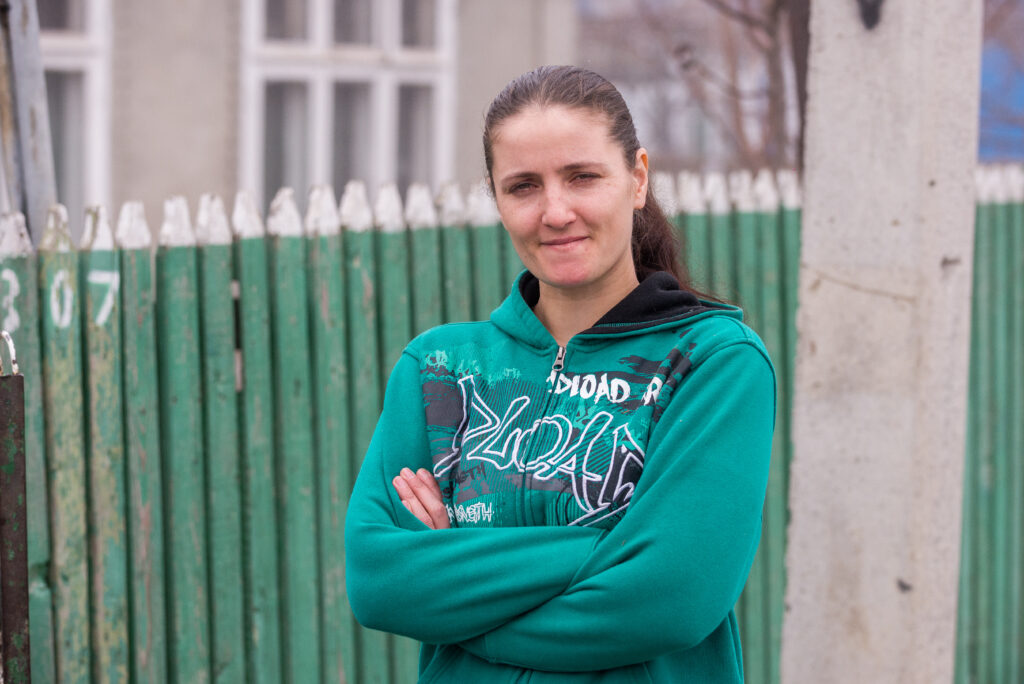 Elena Ursachi, mother of two from Ungheni
Elena Ursachi, mother of two from Ungheni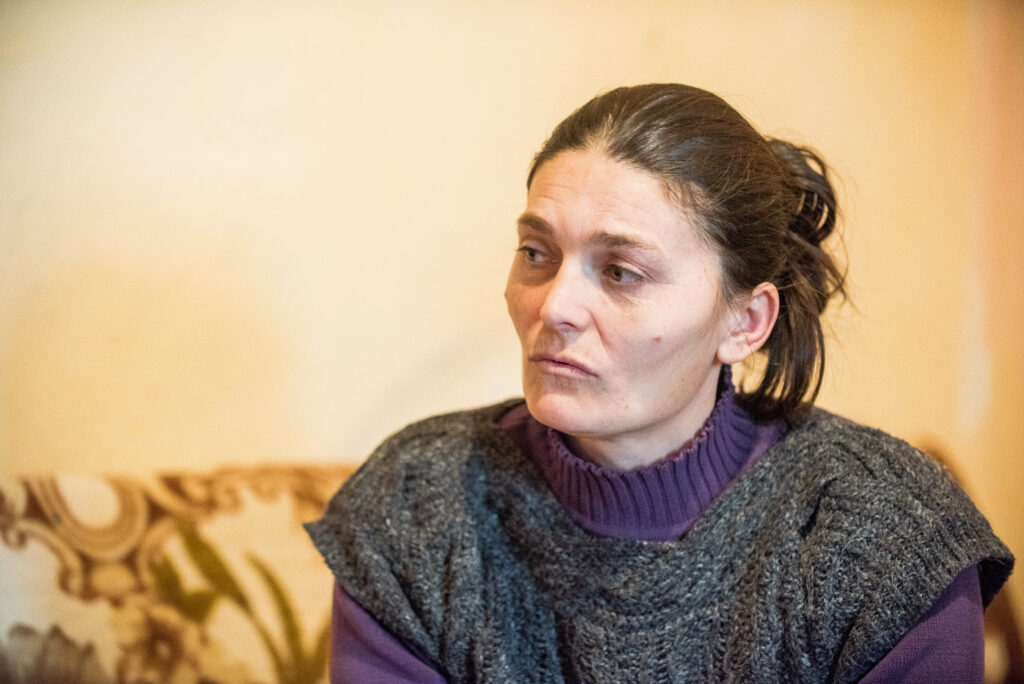 Vera Trefco from Cahul
Vera Trefco from Cahul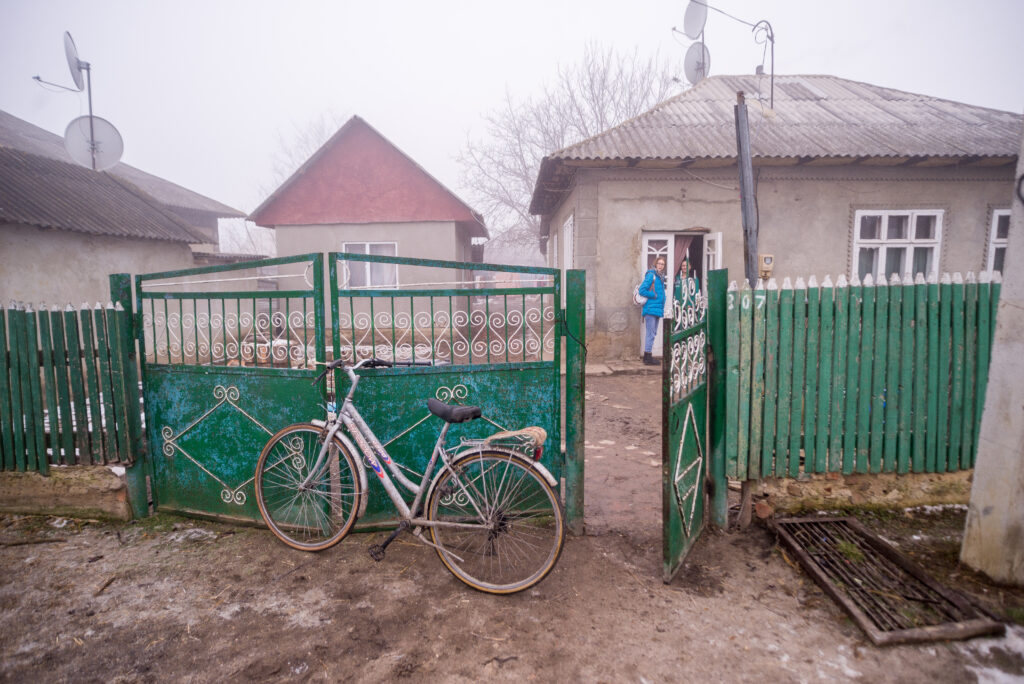 Elena’s parents’ home, which she now shares with one of her brothers and his family
Elena’s parents’ home, which she now shares with one of her brothers and his family
The hardest part was the online classes, Elena tells us. She only has one phone and that is kind of broken. In the spring of 2020, she shared her phone with her daughter Cristina who attended classes using that device. They do not have another phone, let alone a computer.
It was even harder with Ilie. The boy has hearing impairments, and it is virtually impossible for him to attend online classes: ‘Ilie does not hear and it was difficult for him to do the lessons online. He can’t communicate with his teacher over the phone.’
Nevertheless, Elena says she handles it. She has been through harder times. Now she is raising the children alone after their father left them and went to Portugal.
‘I’m not getting back together with him. We lived well for 15 years. The children were born out of love but at some point, the alcohol, cards, difficulties…’
The woman does not have an official job, but she earns some money in constructions, and sometimes she also splits wood. The pandemic has made these processes difficult, too, because she must leave the children in someone’s care when she goes to work.
‘Now, frankly speaking, I’m fortunate to have the social aid, and I can cope a little with the money for the children. It’s a little hard but we can handle it, especially now, with this new house. I want to finish it faster and to move in, so that I can live normally with my children. We thank God that we are healthy.’
Despite the difficulties, in times of pandemic, Elena has managed to buy half a house in Zagarancea. Repair works are in full swing now, and she can’t wait to move in. This is her biggest dream now.
‘To come to live in my house and to sleep peacefully. My first dream is to finish my house, as small as it is. To know that no one will come to bother me at my home, as is happening now.’
Elena says she’s received assistance during the pandemic. It suited her well in the situation in which she found herself and that brings her closer to her dream – to have her own house. This is the aid offered through the EVA Project, a project that promotes gender equality in Cahul and Ungheni districts. It was launched in 2020 with the financial support of the European Union, implemented by UN Women in partnership with UNICEF.
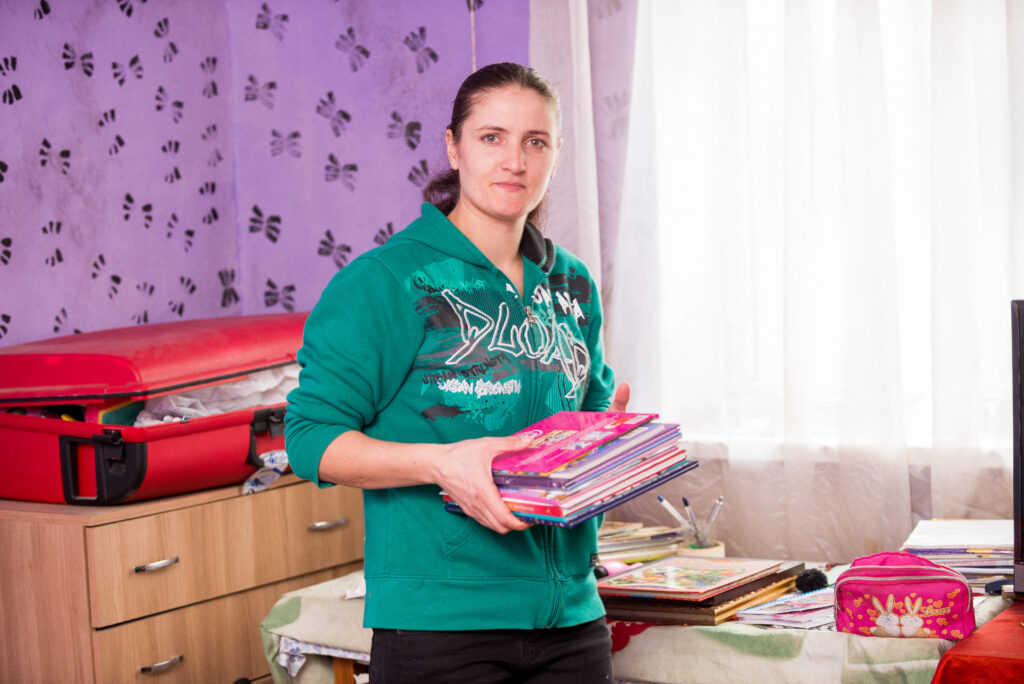 Elena in the bedroom, where she lives with her two children
Elena in the bedroom, where she lives with her two children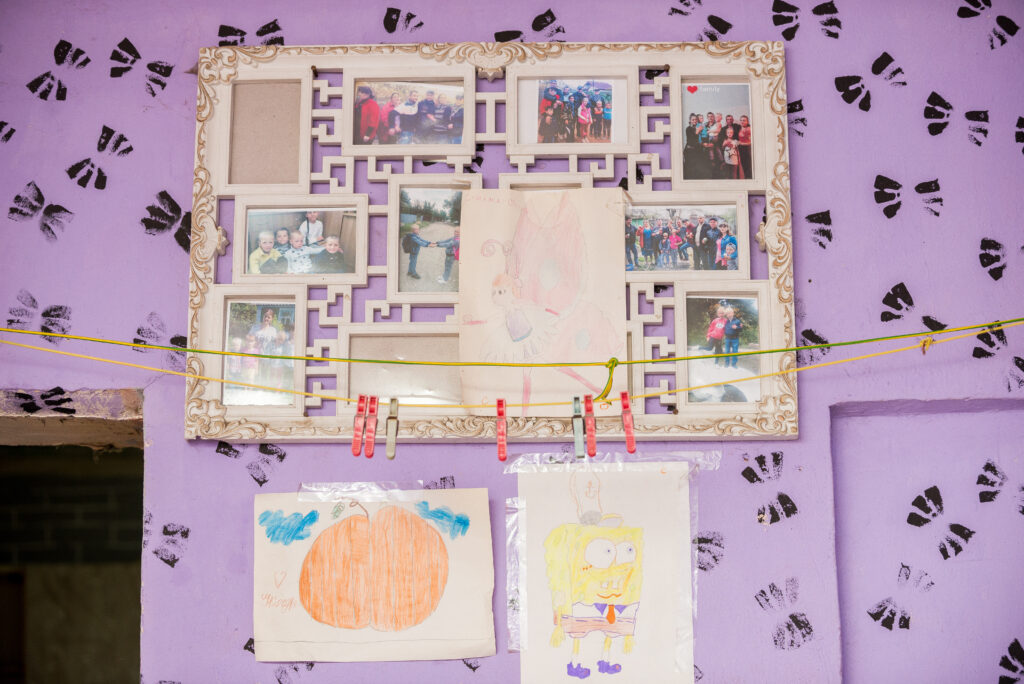 A corner of the house dedicated to family photos and children’s works
A corner of the house dedicated to family photos and children’s works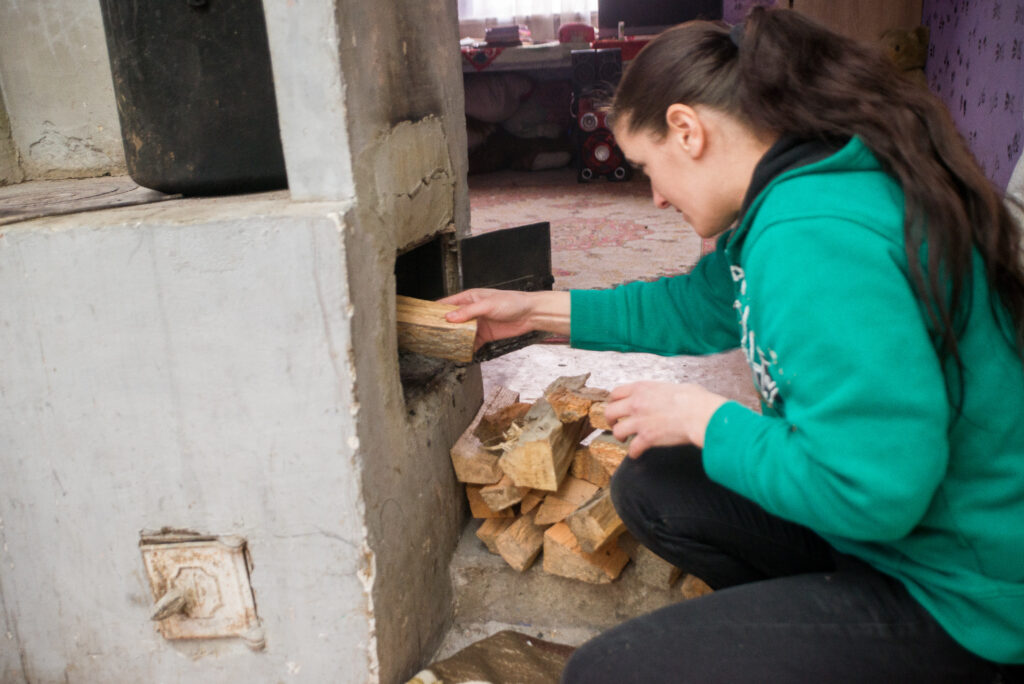 Elena puts wood in the inside stove
Elena puts wood in the inside stove
‘They helped a lot, a great deal actually. With their help, I managed to save money to buy a house last spring. During the pandemic, they offered us food packages, hygiene products and other important things for the house. They have also helped with educational materials for the children.’
Despite the pandemic, Elena says she does not want to scare the children. The woman has a well-defined purpose in life – her children’s future. She insists very much that the girl goes to school regularly and strives for her son and daughter to live a beautiful childhood, without the torments and hardships that characterised her own childhood, which she admits she would not want to return to.
‘You know, I grew up in a boarding school. As a child, I knew what hardships meant and maybe those hardships in my life have made me stronger. Maybe I’m not physically strong, or maybe I am, because I work in constructions, which also requires strength. My children are my strength. If it weren’t for them, it would be impossible. I can’t imagine what I would be like without them. They are my courage for life, I do everything for them.’
At the end of the discussion, Elena told us that she would not give up, that she did not have this right because she was responsible for the lives of those two children. The tractor has to come these days to dig the water ditch at the new house and she thinks that, this year, she will be able to move to the new little nest with Ilie and Cristina.
Having served us coffee and told us about the new house planning and construction, Elena sees us off to the gate. She waves at us with a thoughtful face and probably with many plans: what and how to do for the rest of the day.
And we are heading to our next destination. This time, to the south of the country. We arrive at the Mayor’s Office of the village of Zîrnești, in the district of Cahul. Vera is waiting for us there. She is shy. The Mayor’s Office secretary encourages her. ‘Don’t be afraid, Vera. Tell them everything as it is.’ Turning through a few lanes, we reach Vera’s house. Her husband meets us at the gate.
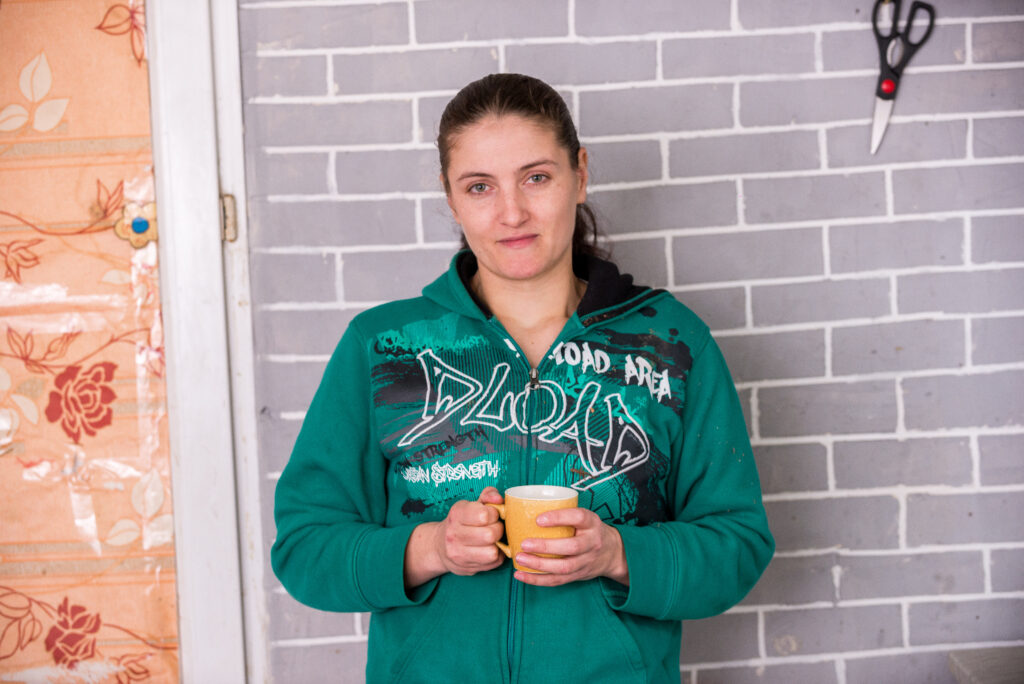 Elena, by the kitchen wall. She plastered the walls on her own
Elena, by the kitchen wall. She plastered the walls on her own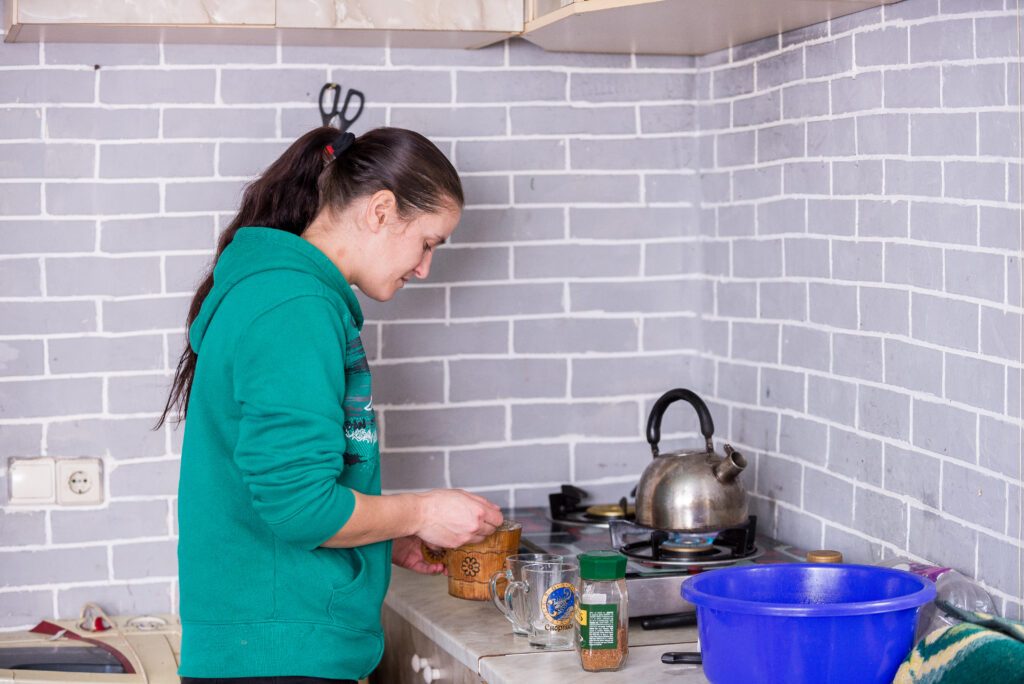 Elena is making coffee in the kitchen arranged in one of the two rooms where she currently lives
Elena is making coffee in the kitchen arranged in one of the two rooms where she currently lives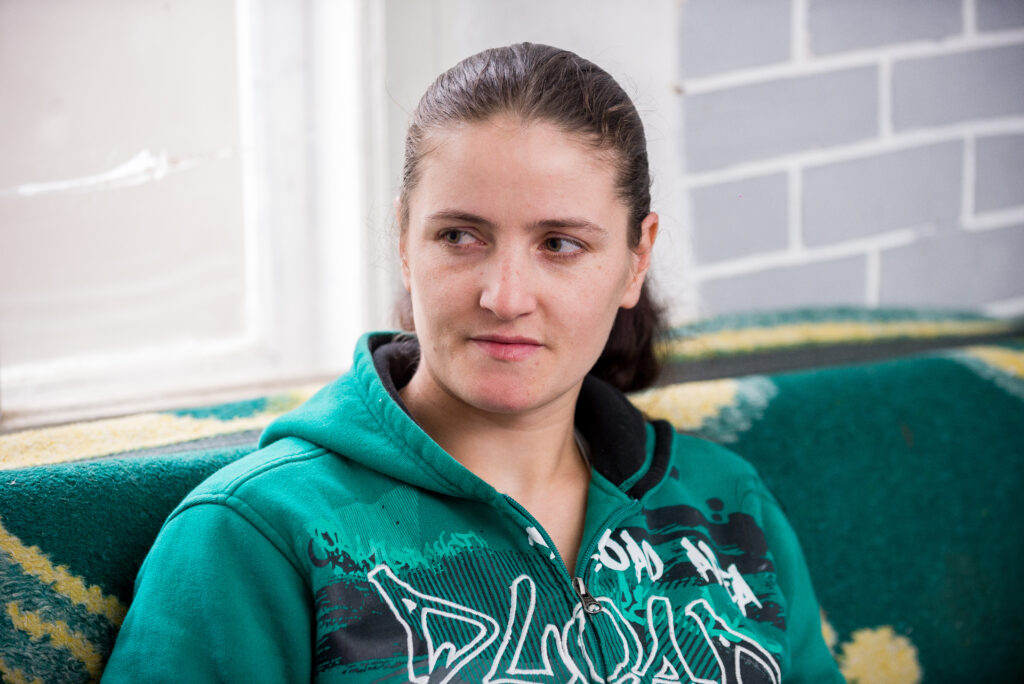 Elena’s talking about the pandemic
Elena’s talking about the pandemic
They invite us to come in. Vera hurries to gather and put things in order around the house. When she finally stops, she tells us that she is 37 years old and has three daughters. Maria is 16, Mihaela is 15, and the youngest, Andreea, is only three.
Maria wants to be an archaeologist, and Mihaela a policewoman. The woman tells us: ‘They are not like us – of the kind who work with the hoe in their hands. And we tell them to study, that this is their future. They say, ‘You reap what you sow’ – that’s why we fight for them to study.’
Vera was not born in Zîrnești, she moved to this village after she got married. She has been through many hardships, and when we got to talking about the pandemic, she sighed.
‘We worried. They wouldn’t allow us even to come out of the yard. The district policeman was driving through the village urging the people not to go out, to stay in their houses. We found out from the TV, and the children had also been informed the night before not to go to the kindergarten or school for two weeks, because there was a coronavirus outbreak. And the children didn’t go out. They all stayed at home.’
At that time, Vera’s husband was working in Germany, but they had the pandemic there, too, so it was impossible to make any money. ‘My husband was gone abroad, to Germany. And they had the pandemic too, and strict rules. It was hard. I don’t even want to remember. He still can’t go, because of the pandemic.’
With the pandemic or without it, one must eat. Vera says they borrowed money, and also bread, sugar, butter and whatever else they needed to feed the children.
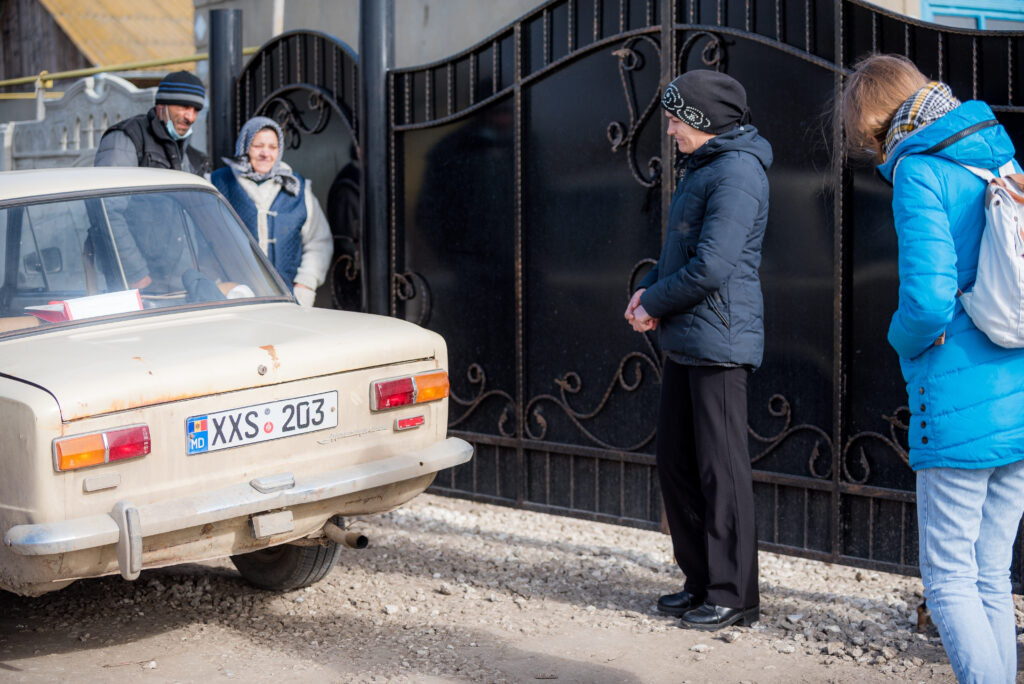 The gate to Vera’s house
The gate to Vera’s house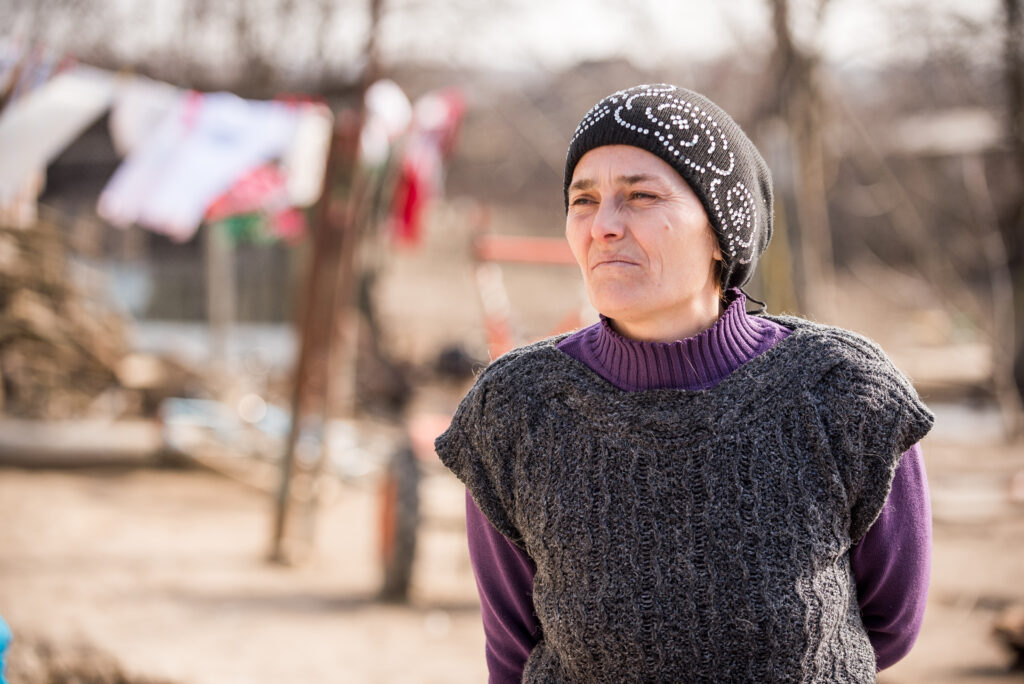 Vera is optimistic about the future, because she is not afraid of difficulties
Vera is optimistic about the future, because she is not afraid of difficulties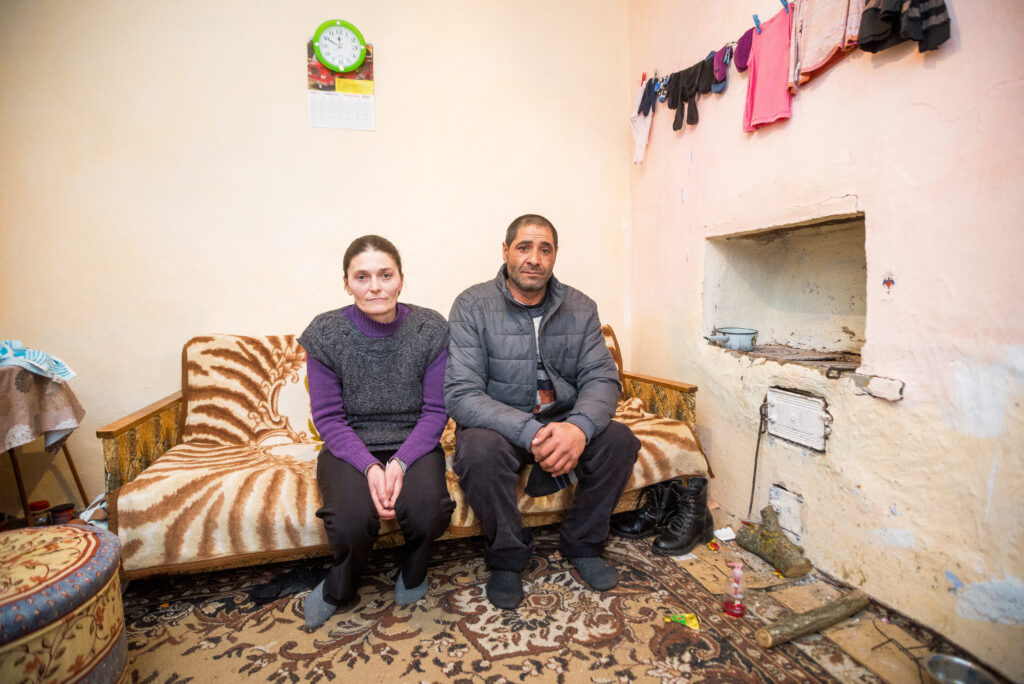 Vera with her husband
Vera with her husband
She also remembers how one day they received a much-needed aid. Exactly the things they were lacking. ‘I remember it was sunny outside and I was sweeping the yard, and the mayor came with the packages. They contained everything: washing powder, soap, hand rub, food. It was exactly what we needed and lacked. They gave us a lot. We are all women, and they gave us what is necessary for the hygiene.’
This was the same EVA programme, launched in 2020 with the support of the European Union, implemented by UN Women in partnership with UNICEF.
Since September 2020, things have changed a bit. The youngest girl was enrolled in kindergarten, and Vera found a job. She was also employed with the kindergarten.
‘I was informed they had work and that I could send my daughter to the kindergarten and I could go to work there, too. I agreed, as we needed money and our needs were big. The eldest girl studies in Cahul, in the 10th grade, she needs money for travel and food, because they don’t feed her at school.’
Vera goes to the kindergarten every morning at 7am. There, she sweeps the sidewalks, rakes, collects the snow: ‘I do everything they tell me to do. I take care of the garbage containers, sometimes dogs come and take out the garbage, and I collect it back.’
The woman does not know how the pandemic will evolve but she plans to continue working at the kindergarten. She has a salary of 1,900 lei there: ‘Ok, but where else to go? Now, with the pandemic, they won’t hire you even by the day. Whereas at the kindergarten… it’s also a state facility.’
Before having her third daughter, Vera worked by the day, but now, due to the pandemic, it is difficult to work by the day, the woman confesses.
The woman’s money is currently the only source of income for all five family members, but Vera is optimistic about the future as she is not afraid of difficulties: ‘We have got used to hardships. We have had them before.’
She does not have big dreams, but she wants three things: ‘Patience, health and strength. I pray for these three every day. I want these three, because wealth… when you die, you don’t take anything with you, but if you have health, you manage them all little by little.’
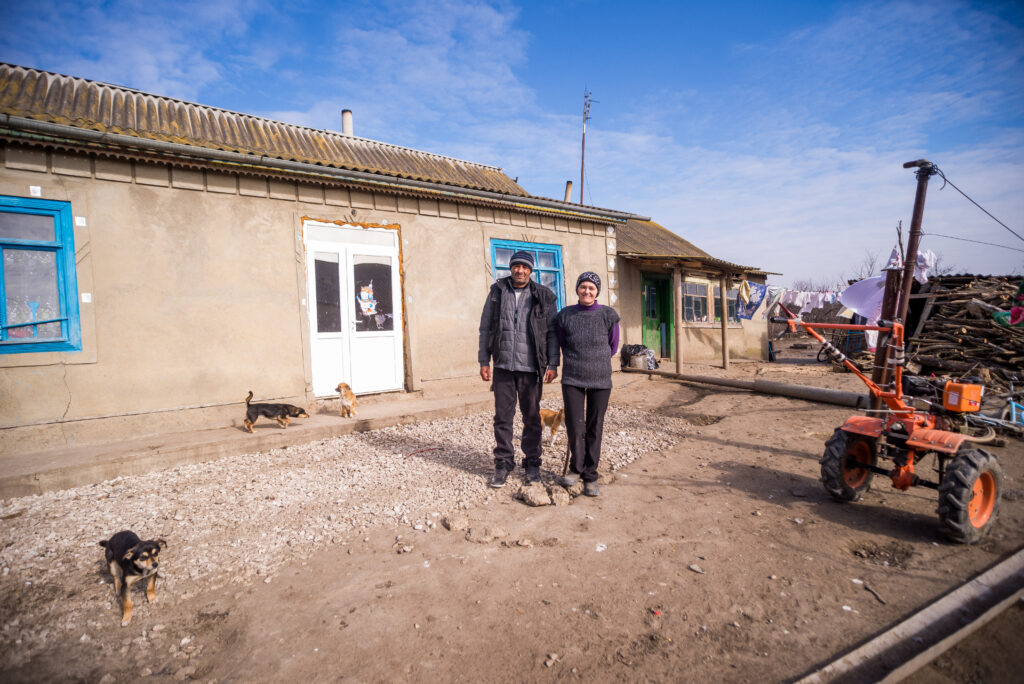 Vera and her husband in the yard
Vera and her husband in the yard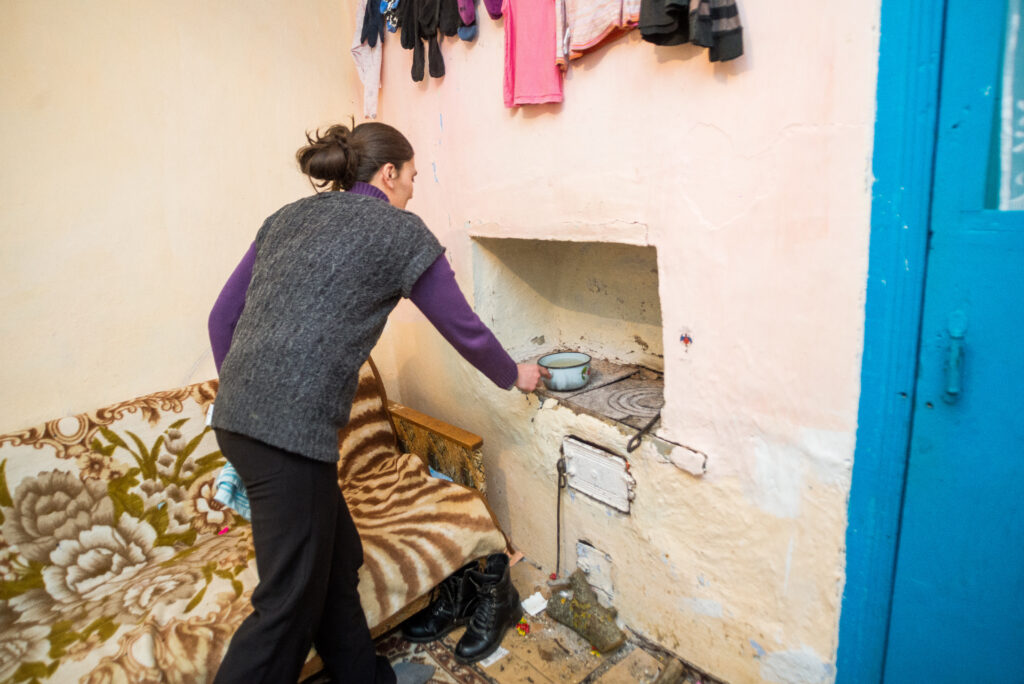 Vera boils tea water on the stove
Vera boils tea water on the stove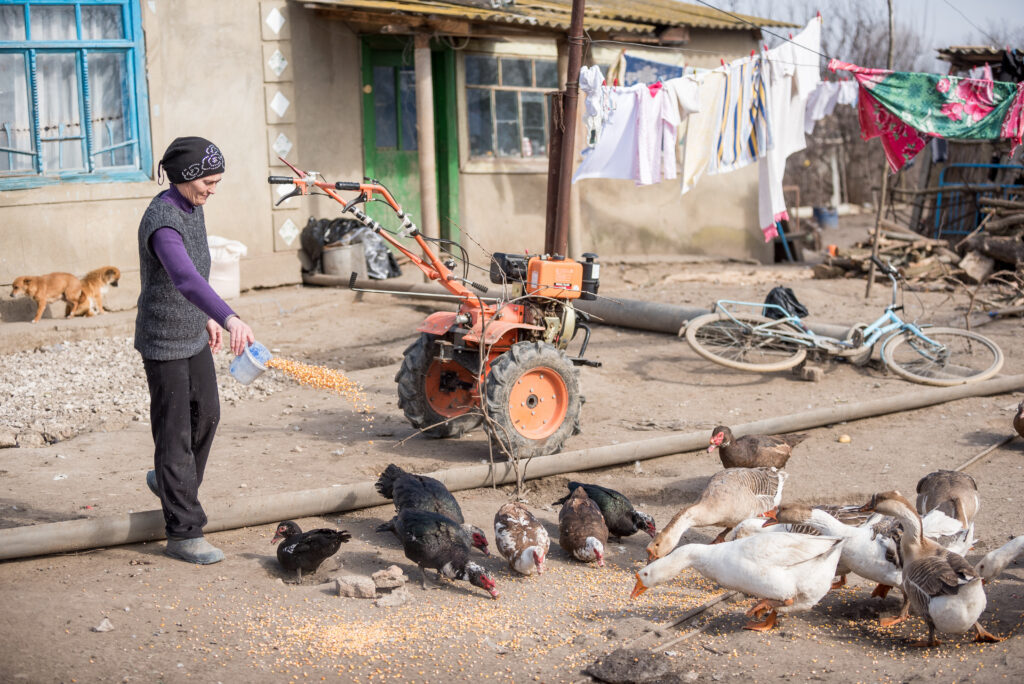 Vera feeds the geese and ducks
Vera feeds the geese and ducks
After we finished the discussion and as we head to the gate, Vera and her husband show us how their garden was flooded, the new gate and fence they have installed, and their beautiful dogs. They are many and naughty. They tell us how hard it is to make the drainage ditch by the fence. Then they waive at us. We slowly walk away, while Vera, surrounded by the playful little dogs, is still watching us. Like Elena, she’s probably thinking about the things she still has to do and how to do them.
About the project: In 2020, UN Women Moldova, in partnership with UNICEF, started implementing the EVA project – ‘Strengthened Gender Action in Cahul and Ungheni districts,’ funded by the European Union. It has two major objectives: to promote gender equality and empower women through gender mainstreaming in local public policies, and to fight domestic violence against women and children. The project is implemented in 24 localities in Cahul and Ungheni districts and will last until December 2022. The EVA project has a budget of €5,250,000, of which €5 million are provided by the European Union.
Author: Elena Baranov
MOST READ
SEE ALSO

No, time is not on Russia‘s side

How to open an art business in Moldova: the experience of Alexandra Mihalaș

Be one step ahead of a hacker: check simple cybersecurity tips!
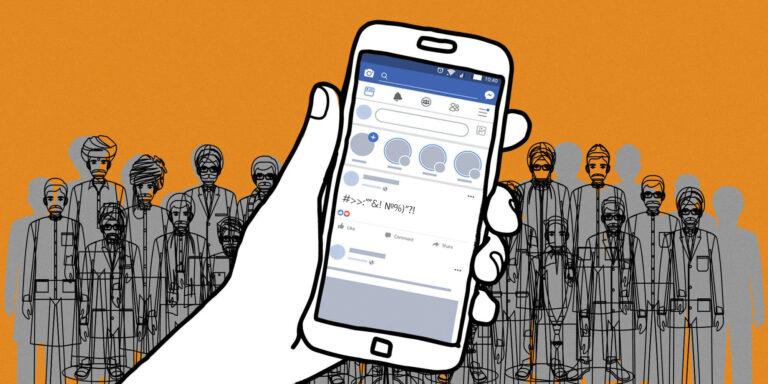
How to act and move on: strategies for women facing discrimination and online harassment
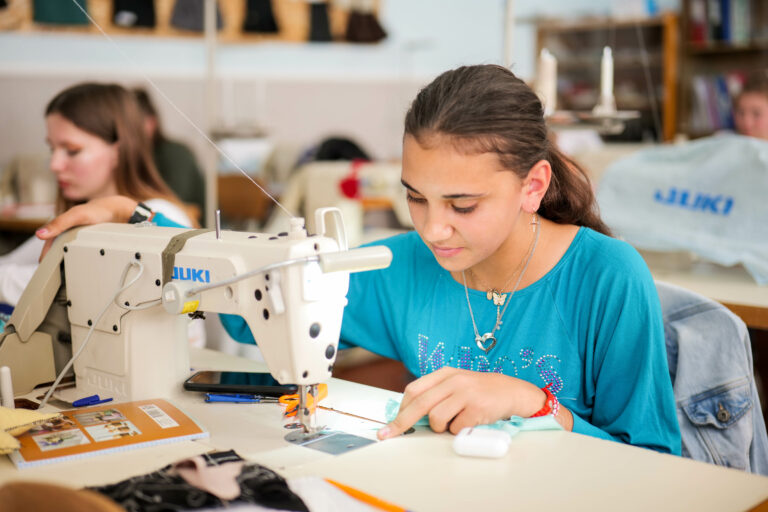
‘Learning is not a process but a journey’: the example of a school in Orhei
More campaign pages:
Interested in the latest news and opportunities?
This website is managed by the EU-funded Regional Communication Programme for the Eastern Neighbourhood ('EU NEIGHBOURS east’), which complements and supports the communication of the Delegations of the European Union in the Eastern partner countries, and works under the guidance of the European Commission’s Directorate-General for Neighbourhood Policy and Enlargement Negotiations, and the European External Action Service. EU NEIGHBOURS east is implemented by a GOPA PACE-led consortium. It is part of the larger Neighbourhood Communication Programme (2020-2024) for the EU's Eastern and Southern Neighbourhood, which also includes 'EU NEIGHBOURS south’ project that runs the EU Neighbours portal.

The information on this site is subject to a Disclaimer and Protection of personal data. © European Union,







